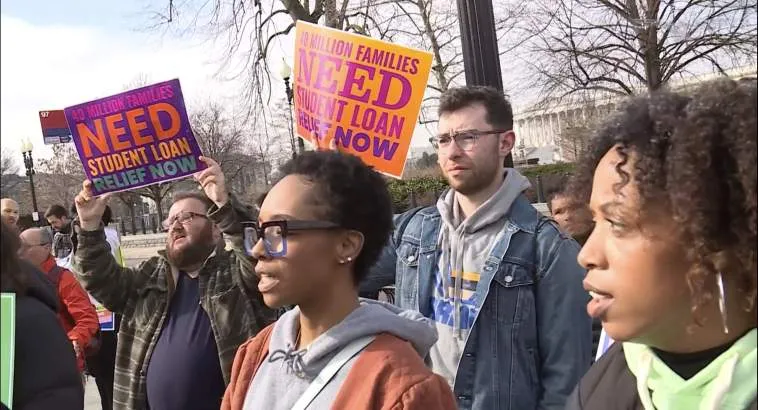(Washington Examiner) The Supreme Court rejected President Joe Biden’s costly student loan forgiveness plan on Thursday after a pair of challenges contested its legality.
The high court handed down two opinions surrounding lawsuits against Biden’s plan to wipe away $400 billion in student debt. Chief Justice John Roberts wrote the 6-3 majority opinion in the case Biden v. Nebraska, with the liberal justices in the minority.
The decision comes as a nearly three-year moratorium on student loan payments will soon end. Interest will start accruing again on Sept. 1, and payments are due beginning in October.
For Biden, the decision marks a stark setback for his agenda. He has vowed to help borrowers “crawl out from under that mountain of debt.”
Roberts’s majority relied on two main grounds. He said the statutory grant and authority to the secretary of education to “waive or modify” loan terms cannot be extended this far. He also said the massive debt cancellation program requires clear congressional authorization.
“The Secretary asserts that the HEROES Act grants him the authority to cancel $430 billion of student loan principal. It does not,” Roberts wrote.
For months, the high court has been toiling over the constitutionality of Biden’s plan after six Republican-led states sued and alleged the president exceeded his legal authority when he implemented the program last August to cancel up to $20,000 in debt for people holding federal student loans.
Biden used executive power under the Higher Education Relief Opportunities for Students Act of 2003, commonly known as the HEROES Act, citing the COVID-19 pandemic as the basis, though the health emergency ended on May 11. The case, argued in February, asked whether the HEROES Act gives the secretary of education the power to grant federal student loan forgiveness.
In the first case challenging the loan plan, Nebraska, along with five other states, argued the 20 million borrowers who would have their entire loans erased would get a “windfall,” leaving them better off than before the pandemic. The state challenge was successful in the U.S. Court of Appeals for the 8th Circuit, which put the plan on hold last October.
In the second case, Department of Education v. Brown, two student loan borrowers who did not qualify for all or part of the relief sued the Biden administration. The high court ruled unanimously that these plaintiffs lacked the legal standing to bring a lawsuit.
While the pair of borrowers technically lost their bid at the high court, the Job Creators Network Foundation, which brought the case on their behalf, celebrated the high court striking down the costly loan forgiveness plan.
“JCNF’s lawsuit played an integral role in today’s victory. Our case, brought in Texas, blocked the entire program at the district level and stopped the application process, allowing the legal challenge to go to the Supreme Court,” Elaine Parker, president of JCNF, wrote in a statement.






